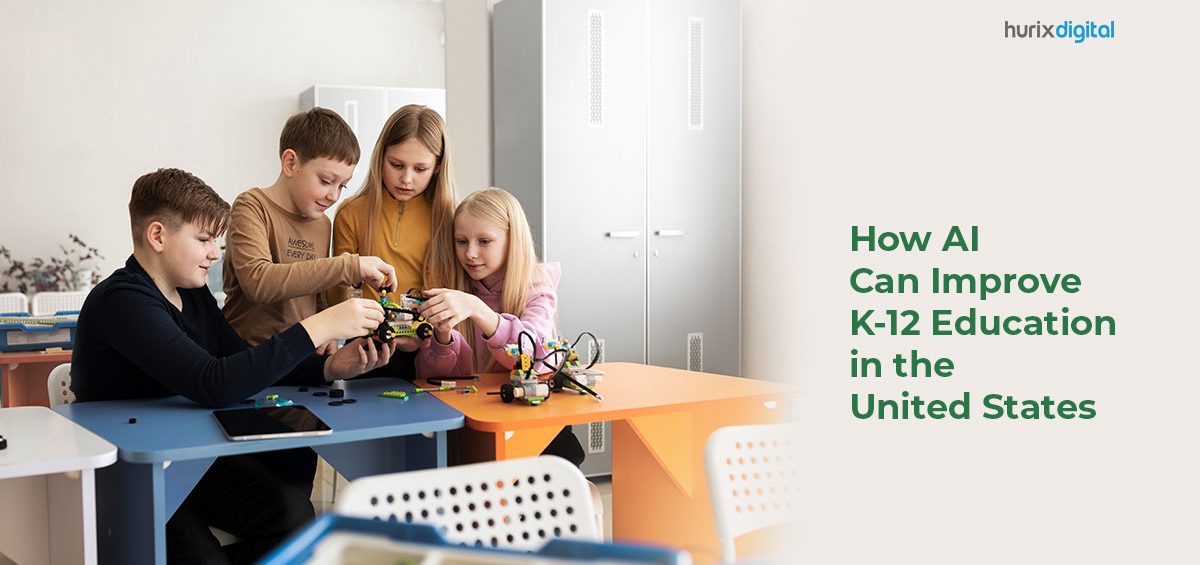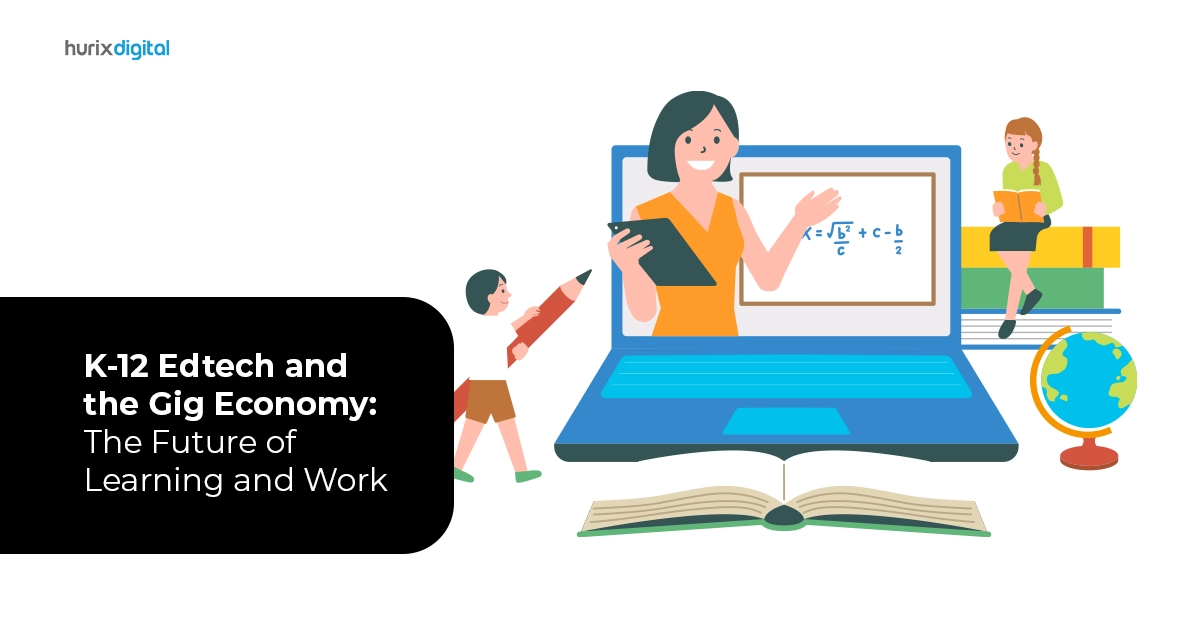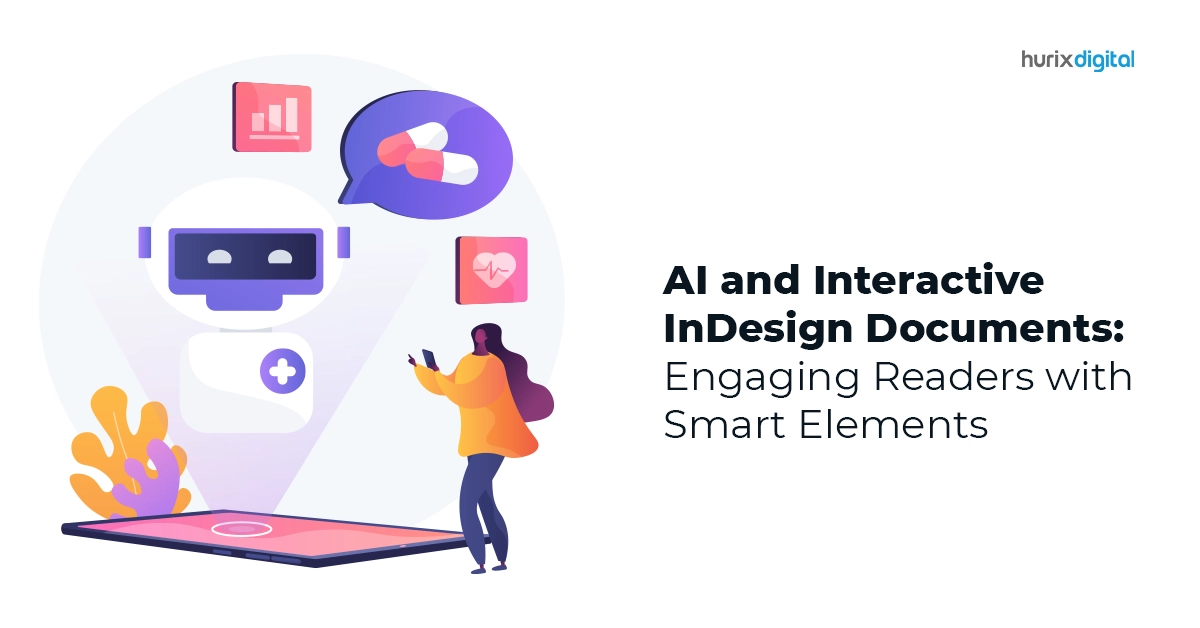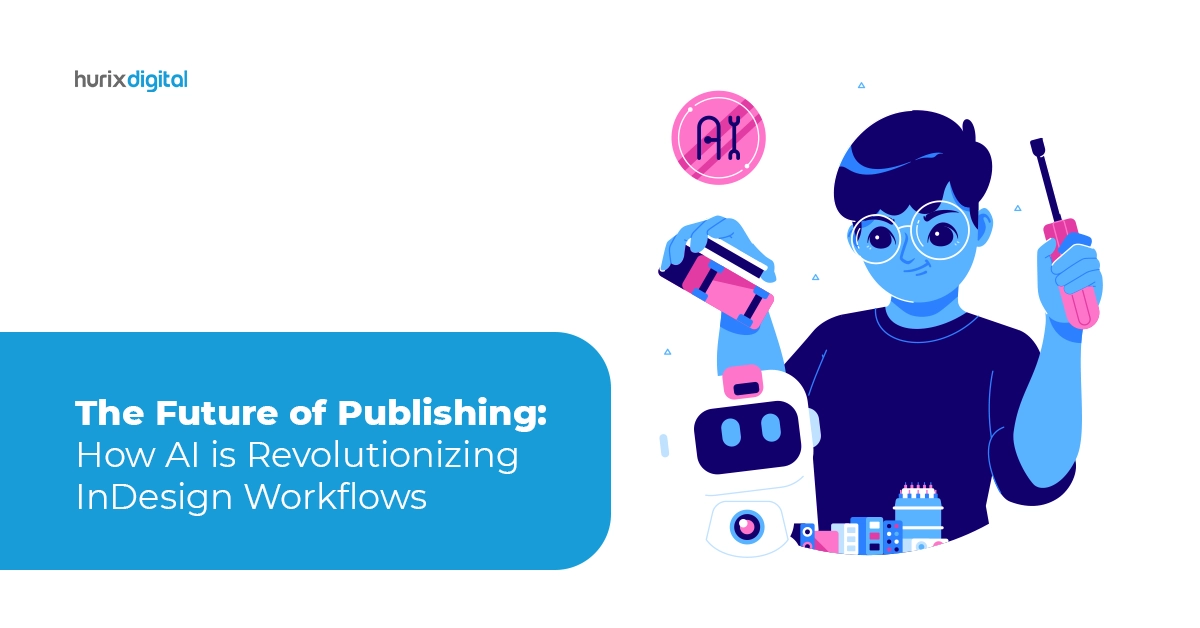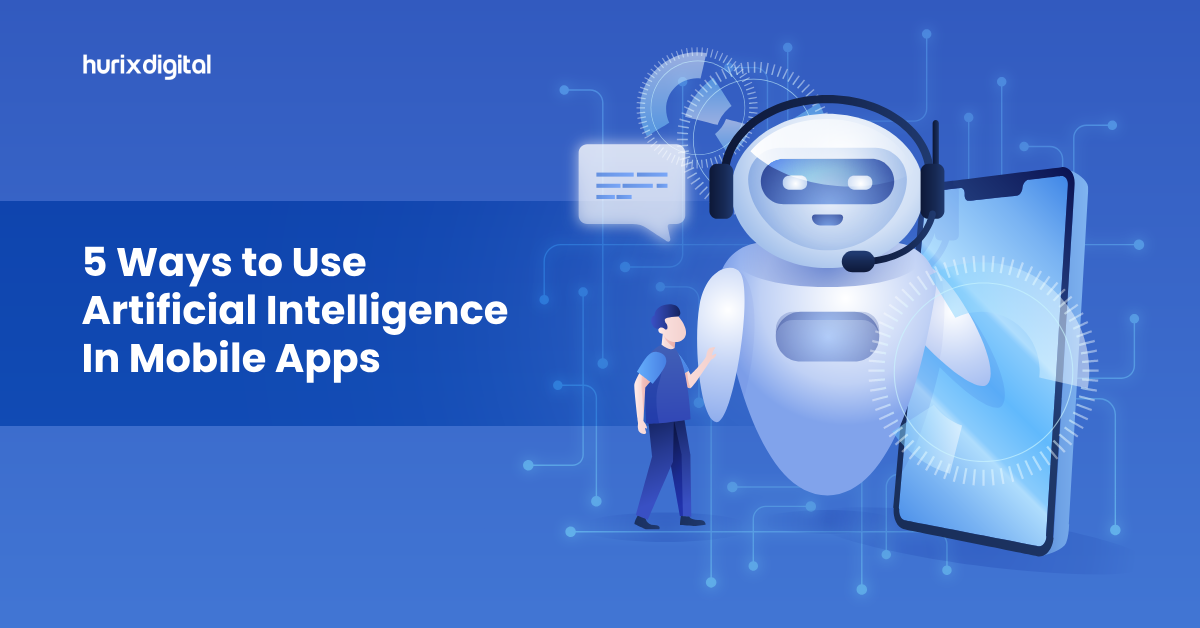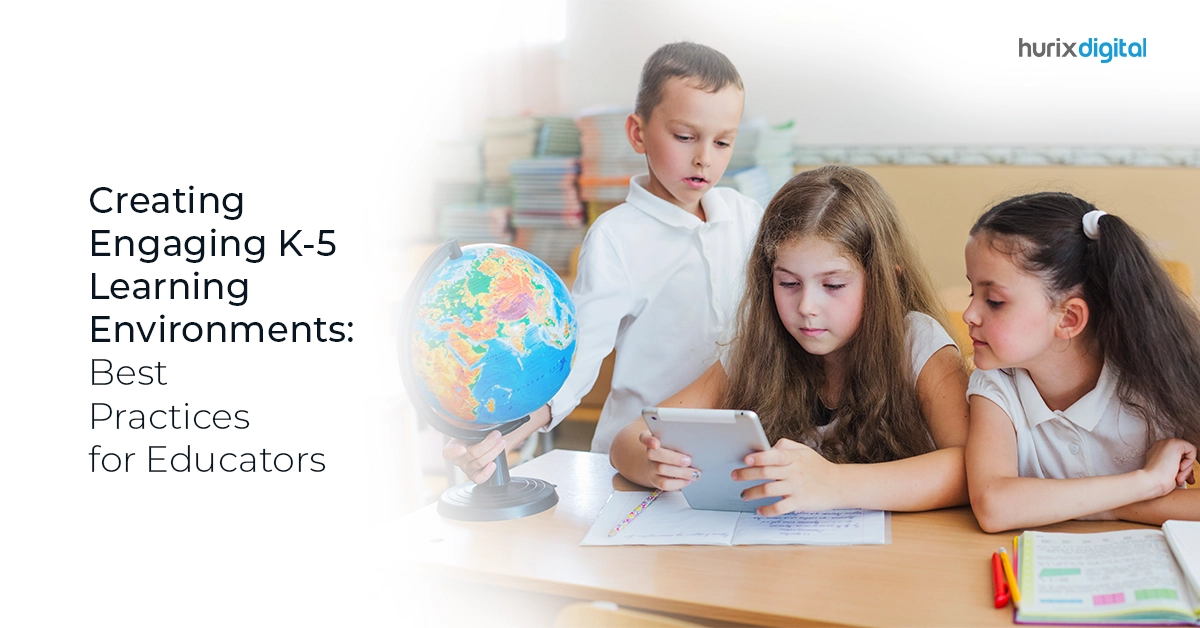AI is gaining wide traction in various industries, transforming business for many. One such field that stands to benefit significantly from AI is K12 learning.
There are many AI use cases in education, from providing personalized learning experiences to making educational content accessible to students with disabilities. Many educators use AI to decrease their workload. Research suggests that K12 teachers can save up to 13 hours per week using technology, which they can better utilize to interact and engage with students.
But while AI in education is becoming increasingly commonplace, professionals in K-12 still aren’t aware of its full potential. In this blog, we will discuss how educators can harness the power of AI to improve learning outcomes for K12 students.
Also Read: Top 6 eLearning Trends for K-12 Education in 2023
Table of Contents:
Application of AI in K12 Education
The primary role of AI in education is to personalize learning with smart content and improved accessibility. Here are some ways you can leverage AI in schools:
1. Intelligent Tutors
Imagine a scenario where an AI program assumes the role of a teacher, guiding students through lessons and even motivating them. This is precisely what intelligent tutors do. They analyze the learning pattern of each student and personalize their learning experience based on their strengths and weaknesses.
By providing one-on-one tutoring, this innovative AI tool increases student engagement and saves teachers valuable time by addressing remedial needs. They serve as a crucial resource for students, allowing them to stay connected to their studies and fill any gaps that may have arisen due to disruptions in the classroom.
Even studies have found Intelligent Tutoring Systems (ITSs) to have the potential to transform teaching and learning by enabling personalized learning experiences. Students using ITSs have improved outcomes in math, language, and science. Further, ITSs have also been found to improve learning engagement, help-seeking behavior, learning interest, attitude, and confidence among K12 students.
2. Digital Assistants and Chatbots
AI-powered digital assistant is another AI-related K12 education trend. Intelligent assistants and chatbots interact with students and provide instant support, information, and guidance. Students can use them to listen to stories, take notes, look up information, or quiz themselves.
An illustration of their application in education is at Georgia State University, where a chatbot called Pounce answers students’ queries. Chatbots like the one can answer frequently asked questions and provide additional information to students on subjects of their interest.
3. Intelligent Textbooks
Intelligent textbooks are special books that use AI to provide customized and interactive content for students of all ages. These textbooks can cover various subjects, from elementary reading to biology for high schoolers. They suggest questions and summaries based on a student’s learning progress to help retain information better.
Unlike regular books, these intelligent textbooks let students explore concepts non-linearly instead of following a fixed order. They also have questions throughout the reading to test students’ understanding.
Some intelligent textbooks even have speech recognition, so students can read aloud and get instant feedback on their pronunciation and reading skills. This is especially helpful for students learning English as a second language.
4. Captioning and Audio Description Tools
With more explainer videos embedded into educational content to enhance learning, it has become crucial to consider the accessibility needs of students with disabilities.
AI technology enables the automatic generation of captions for educational videos, allowing students with hearing impairments to follow along with the content. It not only benefits students who are deaf or hard of hearing but also supports students with different learning preferences or those who need additional reinforcement.
Similarly, AI can provide audio descriptions, which describe visual elements of educational materials. They describe images, diagrams, and other visual content, making them accessible to visually impaired students.
Also Read: Role of Textbook Solutions in Online Learning
5. AI for Student Counseling
Recent advancements in natural language processing and conversational interfaces have opened doors to computer-based counseling. AI tools can improve access to affordable and effective counseling services for students.
AI can analyze language cues and patterns to identify mental health issues, including signs of potential self-harm. In schools, AI monitoring tools have helped identify instances of potential self-harm, supporting early intervention.
Additionally, AI can assist students in career planning by offering resume optimization and mock interview practice. Students can receive personalized recommendations for career paths just by inputting their interests and goals. AI can wonderfully complement traditional counseling, benefiting students with limited resource access.
Benefits of AI in Education
The use of AI in education can empower students, teachers, and administrators to unlock their full potential and enhance overall educational outcomes. Through adaptive technology, you can customize instruction, adapt the curriculum to meet learners’ needs, and create interactive learning environments.
No wonder the AI education market is predicted to rise to $20 billion by 2027 from 1 billion in 2020.
Here are some advantages of AI in education:
- Personalized learning tailored to individual student needs
- Enhanced instruction and real-time feedback through AI-powered tools
- Time-saving administrative tasks, such as grading and scheduling
- Improved access to quality education regardless of location or socioeconomic status.
- Data-driven decision-making for targeted interventions and instructional strategies.
- Inclusive education through AI technologies like captioning and translation.
- Continuous learning and adaptability to keep pace with advancements.
- Increased engagement and independent learning for students.
- Efficient content delivery and scalability through online learning platforms.
- Equal opportunities and accessibility for students with disabilities or language barriers.
AI and Higher Education: The Future
AI in K-12 education holds great promise for transforming the learning landscape in the United States. AI-powered tools like intelligent tutors and digital assistants offer personalized learning experiences and better engagement. These advancements benefit but also empower educators and administrators to support students’ learning better.
However, AI in online education is not without challenges. Educational institutions and K12 EdTech companies must address the privacy and ethical considerations of adopting AI technology. Further, AI resources must be made equally accessible to minimize learning gaps in students.
That said, the opportunities for AI in education are vast. With the advancement of natural language processing and machine learning algorithms, students can experience even more personalized and immersive learning experiences.
To discover the potential and benefits of AI in education, get in touch with Hurix Digital. Hurix Digital is a top provider of technology-enabled K12 solutions. Our expertise lies in developing innovative AI-powered educational tools that can assist institutions and educators in embracing the transformative power of AI. Let’s create a brighter future for K-12 education in the United States!


